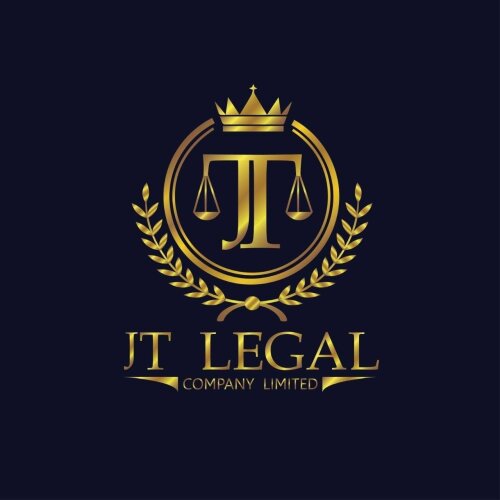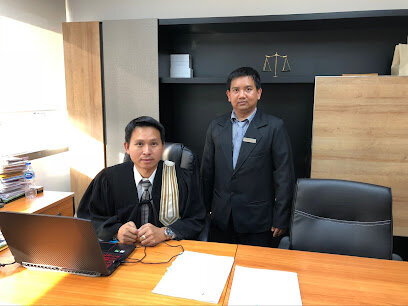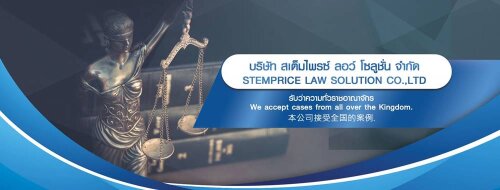About Energy Regulatory Law in Bangkok, Thailand
Energy Regulatory Law in Bangkok, Thailand, covers the rules and regulations that govern the production, distribution, and consumption of energy resources. These laws are designed to ensure the reliable supply of electricity, protect the environment, promote competition, and safeguard consumer interests. The primary focus is on energy sources such as electricity, oil, gas, and renewables. The Energy Regulatory Commission (ERC) is the main regulatory body overseeing the energy market in Thailand, setting tariffs, licensing operators, and ensuring compliance with both national and local energy laws.
Why You May Need a Lawyer
People and businesses often require legal assistance in Energy Regulatory Law for several reasons:
- Obtaining licenses or permits to generate, sell, or distribute electricity or other energy resources
- Negotiating and drafting contracts related to energy projects, such as power purchase agreements
- Advising on regulatory compliance to avoid penalties or shutdowns
- Resolving disputes between energy providers, consumers, and regulators
- Facilitating mergers, acquisitions, or investments in energy companies
- Guiding on cross-border energy trade and foreign investment laws
- Ensuring compliance with environmental regulations affecting energy projects
- Advising on renewable energy incentives and government support schemes
- Handling tariff and rate disputes or appeals
- Defending against allegations of non-compliance or regulatory breaches
Local Laws Overview
Energy Regulatory Law in Bangkok is shaped by national laws but often involves local implementation. Key aspects include:
- Energy Industry Act B.E. 2550 (2007): The main legislation that provides the framework for licensing, tariffs, dispute resolution, and consumer protection in the electricity and energy sectors.
- ERC Regulations: The Energy Regulatory Commission issues detailed rules on licensing procedures, technical standards, consumer services, and competition safeguards.
- Environment Protection Laws: Energy projects in Bangkok must comply with local zoning, environmental impact assessments, and emission controls, especially for large or renewable energy projects.
- Tariff Setting: Tariffs for electricity and other energy sources are regulated and periodically reviewed to balance producer interests and consumer protection.
- Renewable Energy Promotion: Local and national policies encourage the development of solar, wind, biomass, and other renewable energy projects with incentives, feed-in tariffs, and simplified licensing.
- Foreign Investment Rules: Foreign ownership in the energy sector is subject to restrictions and may require Board of Investment promotion or special approvals.
Frequently Asked Questions
What is the role of the Energy Regulatory Commission (ERC)?
The ERC oversees licensing, setting and reviewing tariffs, enforcing industry standards, and addressing disputes in the energy sector throughout Thailand, including Bangkok.
Do I need a license to generate electricity in Bangkok?
Yes, the generation, sale, or distribution of electricity typically requires licensing from the ERC, and certain small-scale or renewable projects may qualify for streamlined procedures.
Are there incentives for renewable energy projects?
Yes, the Thai government and ERC provide incentives such as feed-in tariffs, soft loans, and tax exemptions to promote renewable energy project development.
What are the penalties for operating without a license?
Operating without the necessary licenses in the energy sector can result in significant fines, legal action, the shutdown of operations, or forfeiture of assets.
How are energy tariffs set in Bangkok?
Tariffs are reviewed by the ERC based on production costs, investment needs, fuel prices, and policies. Public consultations are part of the review process.
What happens if there is a dispute between an energy provider and a consumer?
The ERC has mechanisms for dispute resolution. Parties can file complaints with the ERC, which may mediate or adjudicate the dispute.
Can foreign companies invest in the energy sector in Bangkok?
Yes, but with restrictions. Foreign investment may require Board of Investment approval or adherence to foreign business laws, especially in critical infrastructure sectors.
Do energy projects need environmental approval?
Yes, larger projects and those with potential environmental impacts must undergo environmental impact assessments and obtain approval from relevant agencies.
What legal documents are required for an energy project?
Common documents include project agreements, power purchase agreements, land use documents, environmental permits, and ERC licenses.
How can a lawyer help with compliance issues?
A lawyer can review operations, provide compliance audits, advise on regulatory changes, and represent the company in dealings with the ERC or in legal disputes.
Additional Resources
If you need more information or official guidance, you may consider contacting or researching these organizations:
- Energy Regulatory Commission (ERC): The main authority for energy regulation, licensing, and dispute resolution
- Ministry of Energy: Responsible for overall energy policy, strategy, and national projects
- Board of Investment (BOI): Offers permits and incentives for foreign investment in Thailand's energy sector
- Electricity Generating Authority of Thailand (EGAT): Key operator and project developer in the energy market
- Bangkok Metropolitan Administration (BMA): Local administration for city-specific permits, zoning, and approvals
- Thai Industrial Standards Institute (TISI): Provides technical standards for equipment and systems
Next Steps
If you believe you need legal assistance regarding Energy Regulatory Law in Bangkok, start by:
- Clearly identifying your objectives, whether starting a project, resolving a dispute, or ensuring compliance
- Gathering relevant documents, including licenses, permits, contracts, and correspondence with authorities
- Consulting with a qualified lawyer experienced in Energy Regulatory Law and familiar with Bangkok’s regulatory environment
- Preparing your questions and listing the specific issues you need addressed
- Discussing possible solutions, timelines, and legal costs in your initial consultation
- Staying updated on regulatory changes that may affect your project or business
Taking prompt and informed steps can prevent delays, disputes, and legal exposure in the highly regulated energy sector of Bangkok, Thailand.
Lawzana helps you find the best lawyers and law firms in Bangkok through a curated and pre-screened list of qualified legal professionals. Our platform offers rankings and detailed profiles of attorneys and law firms, allowing you to compare based on practice areas, including Energy Regulatory Law, experience, and client feedback.
Each profile includes a description of the firm's areas of practice, client reviews, team members and partners, year of establishment, spoken languages, office locations, contact information, social media presence, and any published articles or resources. Most firms on our platform speak English and are experienced in both local and international legal matters.
Get a quote from top-rated law firms in Bangkok, Thailand — quickly, securely, and without unnecessary hassle.
Disclaimer:
The information provided on this page is for general informational purposes only and does not constitute legal advice. While we strive to ensure the accuracy and relevance of the content, legal information may change over time, and interpretations of the law can vary. You should always consult with a qualified legal professional for advice specific to your situation.
We disclaim all liability for actions taken or not taken based on the content of this page. If you believe any information is incorrect or outdated, please contact us, and we will review and update it where appropriate.
















